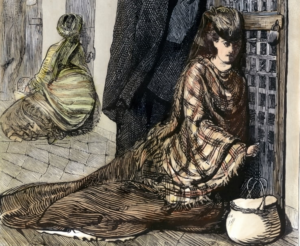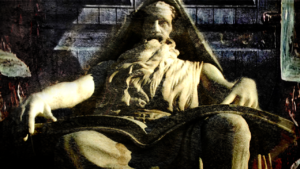The Who & The Futility Of Countercultural “Rebellion”

Two of the best known songs by The Who epitomize a tectonic shift in cultural attitude and outlook. Whilst we may look back at such an era of music as one of “oldies”, where boomers reflect on an age you couldn’t possibly have imagined their old selves being part of, they show just how long a time in music six years could be.
I refer of course to their 1965 paean to bottled, manufactured teen angst, “My Generation”, and the 1971 epic rock opera single “Won’t Get Fooled Again”. Chronologically, both singles span The Who’s beginnings as a flagship band of the “Brit invasion” of the 1960’s, towards becoming seasoned, weathered veterans of the cultural upheavals that defined mass culture throughout these years.

Both songs also symbolize the journey of narratives that were undertaken within the counterculture, beginning with raw, petty nihilism, and a sense of knowing no better as a result of wishing to be eternally young “I hope I die before I get old”, unquestioningly writing off anyone who doesn’t fit the malaise of fast fashion and the “cool Brittania” of “swinging Sixties” London as “square”.
“My Generation” is for its time raunchous, angry and to the point. Like the punk rock movement phenomenon that engulfed the UK in 1977 to the tune of “Anarchy In The UK”, this was the sound and words of a generation of youngsters who in the midst of their impulses thought they were the essence of a revolution that once attained would be unsurpassable.
Yet in reality it was a quick dead end for a generation of youngsters who for the most part lacked the conscientiousness to realize that what made for their “rebellion” was in reality consumerism masquerading as a revolt against the very system they helped sustain through their spending habits, disposable incomes and lifestyle choices.
“Won’t Get Fooled Again” comes across as a sober wake up in contrast. Led by a pulsing, panning synthesizer tone (an attempt to attain the “universal chord”) and accentuated with upbeat power chord bashing, Roger Daltrey’s vocal is now less snotty but more powerful, less nasal and with more expressive range.

Various manifestations of pop culture and music were also invoking a conscious effort to become something that went beyond the shallowness of the counterculture’s more superficial whims. Within less than a decade, the progressive rock movement had encapsulated this willingness to become more “complete”.
His backing of Pete Townshend, Jon Entwistle and Keith Moon, though they have musically “matured” and found a greater sense of conceptual ambition, still sound intent on destroying and pummelling their instruments as much as possible. Whilst not “brutal” on an aesthetic level, we are talking of a band who may have without intent pioneered a “proto-death metal” vocal technique on “Boris The Spider”.
With “Won’t Get Fooled Again”, not only do The Who deliver a powerfully anthemic song, yet they appear to be very aware of the futility of the revolution they thought they would usher in, realizing that they themselves are now their own “royalty” and that history is bound to stages of blossom, wither and decay, that youthful energy is always at risk of giving way to sad decrepitude.
Such is the legacy of those who wish only to “seek and destroy”. Very often the artists life cycle burns quickly but brightly, so brazenly that no other direction but a “progression” beyond their initial “anger” becomes inevitable.











